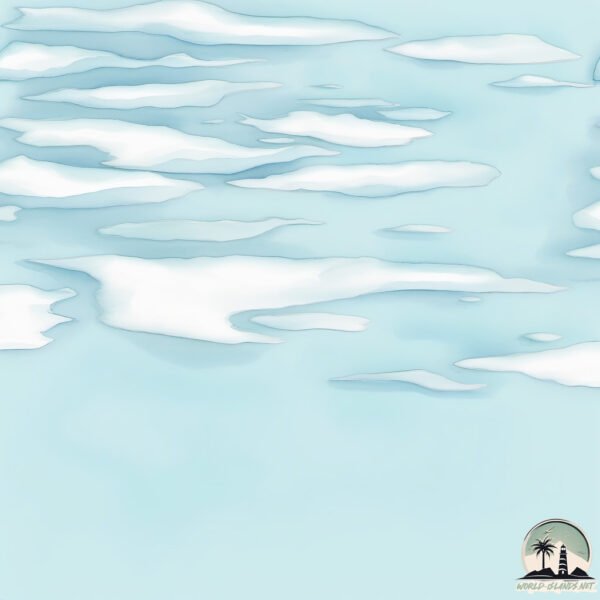Hall

Welcome to Hall, a Polar island in the Barentsz Sea, part of the majestic Arctic Ocean. This guide offers a comprehensive overview of what makes Hall unique – from its geography and climate to its population, infrastructure, and beyond. Dive into the details:
- Geography and Size: Explore the island’s size and location.
- Climate and Weather: Weather patterns and temperature.
- Topography and Nature: Uncover the natural wonders of the island.
- Infrastructure and Travelling: Insights on reaching, staying, and making the most of your visit.
- News and Headlines: Latest News.
Geography and size of Hall
Size: 917.9 km²
Coastline: 310.9 km
Ocean: Arctic Ocean
Sea: Barentsz Sea
Continent: Europe
Hall is a Large Island spanning 918 km² with a coastline of 311 km.
Archipel: Franz Josef Land – A Russian archipelago in the Arctic Ocean, known for its glaciated landscape and as a base for polar expeditions.
Tectonic Plate: Eurasia – One of the world’s largest tectonic plates, the Eurasian Plate covers a significant portion of Europe and Asia. It’s characterized by diverse geological features, including the Ural Mountains, the European Plain, and the Himalayas formed from its collision with the Indian Plate.
The geographic heart of the island is pinpointed at these coordinates:
Latitude: 80.32106648 / Longitude: 57.98108277
Climate and weather of Hall
Climate Zone: Polar
Climate Details: Tundra
Temperature: Cold
Climate Characteristics: The tundra climate features long, extremely cold winters and short, cool summers. Vegetation is limited to mosses, lichens, and small shrubs due to the low temperatures and short growing seasons. Biodiversity is low, but some specialized species thrive.
Topography and nature of Hall
Timezone: UTC+04:00
Timezone places: Europe/Moscow
Max. Elevation: 472 m
Mean Elevation: 195 m
Vegetation: Snow and Ice Covered
Tree Coverage: 11%
The mean elevation is 195 m. The highest elevation on the island reaches approximately 472 meters above sea level. The island is characterized by Hills: Gently sloping landforms with rounded tops, having a maximum elevation between 200 and 500 meters. Hills contribute to a varied landscape on islands.
Dominating Vegetation: Snow and Ice Covered
These areas are permanently or seasonally covered in snow and ice, with little to no vegetation, such as polar regions and high mountains. Hall has a tree cover of 11 %.
Vegetation: 4 vegetation zones – Diverse Island
Four distinct vegetation zones mark these islands as ecologically diverse. They might feature varied landscapes such as forests, beaches, grasslands, and rocky areas. Such diversity reflects the island’s complex ecological interactions and varied habitats, which can support a rich array of wildlife and plant species.
Infrastructure and Travelling to Hall
Does the island have a public airport? no.
There is no public and scheduled airport on Hall. The nearest airport is Amderma Airport, located 1200 km away.
Does the island have a major port? no.
There are no major ports on Hall. The closest major port is MEZEN, approximately 2159 km away.
The mean population of Hall is 0 per km². Hall is Uninhabited. The island belongs to Russia.
Continuing your journey, Heiss is the next notable island, situated merely km away.
Hall Island



Russia is classified as Emerging region: BRIC: Brazil, Russia, India, and China – Economies noted for their rapid growth and increasing influence on global affairs. The level of income is Upper middle income.
News – Latest Updates and Headlines from Hall
Stay informed with the most recent news and important headlines from Hall. Here’s a roundup of the latest developments.
Please note: The data used here has been primarily extracted from satellite readings. Deviations from exact values may occur, particularly regarding the height of elevations and population density. Land area and coastline measurements refer to average values at mean high tide.
